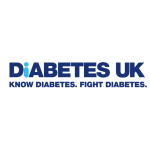Equity release in Scotland offers homeowners, who are over the age of 55, a valuable financial option to access the equity tied up in their property, without the need to sell or move out.
Equity Release can provide either a tax-free lump sum or regular income, enhancing financial flexibility in later life.
The article will help you do the following:
Here are 7 key takeaways from this article:
Equity release in Scotland allows individuals who have reached the age of 55 and own their own property, to access some of the equity tied up in their homes.
This can be done through schemes such as lifetime mortgages , home reversion plans, or retirement interest-only mortgages. It is important to note that the money released can be taken as a lump sum, as regular income or as a line of credit.
Equity release plans in Scotland must be provided by FCA-authorised companies. In addition, many providers voluntarily follow standards set by the Equity Release Council for extra consumer protection.
An important detail of Equity Release Scotland is that to receive equity release products, you need to be the sole owner or one of the legal owners of the property. Equity release schemes are designed to run for your lifetime, meaning that you retain ownership of your property until you die or move into long-term care.
Equity release schemes can be a good option for those who have owned their homes for a long time. This is often the case in Scotland, where house prices have generally increased over the years.
As a result, many homeowners have built up significant home equity, so taking out a tax free cash sum could benefit the family financially.
Here is a video that discusses the pros and cons of equity release
Equity release in Scotland offers homeowners over the age of 55 a way to access the equity tied up in their property without the need to sell or move out.
There are two types of equity release schemes available: lifetime mortgages and home reversion plans. Each scheme has unique features and benefits, catering to different financial needs and circumstances.
A Lifetime Mortgage is the most popular type of equity release scheme in Scotland.
It allows you to take out a loan secured on your home while retaining ownership of it. The loan, along with the accrued interest, is repaid when the home is sold, usually when you pass away or move into long term residential care.
There are several types of Lifetime Mortgages available in the UK:
You receive a one-off lump sum at the start, with interest accruing on the total amount borrowed from day one.
This option provides more flexibility, allowing you to release equity as and when you need it. Interest is only charged on the amount withdrawn, potentially reducing the overall cost.
With this, you can choose to make monthly interest payments, which prevents the loan amount from increasing. This can help preserve more of the equity in your home for a future inheritance for your family.
Enhanced lifetime mortgages offer a solution for homeowners with certain health conditions or lifestyles that may affect their life expectancy. This type of mortgage allows you to access a larger lump sum upfront, based on the expectation that you expect a shorter life expectancy.
Home Reversion involves selling a part or all of your home to a home reversion provider in return for a lump sum or regular payments.
Unlike Lifetime Mortgages, Home Reversion Plans do not involve taking out any type of loan, so there is no interest to pay. However, it’s important to note that you will usually receive less than the market value for the share of your home sold under a Home Reversion Plan.
Home Reversion Plans may suit those looking to guarantee an inheritance for their family, as you can choose to sell only a portion of your residential property.
It’s also a way to access equity without adding interest, which can be useful for those concerned about eroding their home’s value.
Both Lifetime Mortgages and Home Reversion Plans come with their own set of advantages and considerations.
It’s crucial to seek independent advice to determine which option best suits your financial situation and goals.
Equity release in Scotland can offer a flexible solution to financial needs in retirement, but understanding the implications for your estate and any potential impact on state benefits is essential before you take it on.
Using an equity release calculator offers several benefits, providing you with a quick and straightforward way to estimate the amount of equity they can release from your property.
It serves as an essential first step in the equity release process, allowing you to assess the feasibility of an equity release scheme based on your age, property value, and current mortgage balance, if applicable.
You can use the equity release calculator below to get an estimate.
.

Try Age Partnership’s equity release calculator and estimate how much money you could release from your property.

If you take out a product from Age Partnership, we will receive a fee for introducing you to them. This helps support the site and for us to produce more content.

Understanding the current market trends and interest rates for equity release in Scotland is essential for anyone considering this as an option.
These factors can significantly influence the cost of the loan over time and the amount of equity left in your home.
Equity release interest rates in Scotland have historically varied, influenced by broader economic conditions.
Currently, rates are competitive, but not as high as they were in the past. However, it’s important to note that they are typically higher than those for standard mortgages due to the long-term nature of the loan and the fact that monthly repayments are not usually made until the property is sold.
Interest rates on an equity release product can be fixed or variable, with most people opting for a fixed rate to ensure stability in future repayments.
Our expectation at UK Care Guide is that the use of equity release plans will increase this year.
The equity release market in Scotland has seen growth in recent years, with more homeowners looking to unlock the value in their homes to support their retirement finances.
This growth has led to an increase in the number of products available, offering more choice to consumers. However, it also means that the market can be complex to navigate.
The trend of the last few years has been for new products to enter the market.
There is a wide range of equity release products on the market, so it’s crucial to compare the different options available. Factors to consider include the interest rate, loan-to-value ratio, flexibility in terms of making partial repayments, and any additional features or safeguards, such as a no-negative-equity guarantee.
Given the complexities of the market, changing trends and products, and the long-term commitment involved, seeking advice from a qualified equity release adviser is recommended.
An adviser can provide up-to-date information on the best rates and products available, tailored to your specific circumstances and financial goals.
Staying informed about the current interest rates and market trends is key to making a well informed decision about equity release in Scotland.
Understanding who can apply for equity release in Scotland is essential if you are considering this option.
The eligibility criteria ensure that applicants meet the basic requirements set by lenders. Here are the key criteria:
The minimum age for equity release applicants is usually 55 years. However, some plans, especially Home Reversion schemes, may require you to be at least 60 or 65 years old. The age requirement will apply to the youngest homeowner for joint applications.
Your property must have a minimum value, which is typically around £70,000 or more, to qualify for equity release. This value ensures that there is sufficient equity in the home to warrant the release. However, each provider may have different requirements.
The property must be located in Scotland. Some lenders may have specific geographic restrictions, focusing on mainland Scotland or excluding certain remote areas or islands.
Eligible properties typically include standard construction homes.
Properties of non-standard construction, such as those with thatched roofs or timber frames, may not be eligible or you may find that they require further assessment before any lending is agreed.
If there is an existing mortgage or any secured loan on the property, it must be paid off at the outset of the equity release plan. However, the funds released can uusaly be used to clear these debts if necessary.
Applicants must live in the property as their main residence. Equity release is not available for rental or investment properties.
These criteria are designed to protect both the homeowner and the lender. By ensuring that applicants meet these basic requirements, lenders can provide an equity release scheme that is suitable and sustainable for the homeowner’s circumstances.
It’s also important for potential applicants to review these criteria carefully and consider seeking independent advice to understand how equity release could fit into their later life financial planning.
Some of the Best Equity Release Interest Rates as of 18 April 2024
The table below shows you some of the best equity release rates for lifetime mortgages from some of the leading equity release providers in the UK.
| Provider Name | Product Name | Interest Rate | Type of product | Offers | ||
|---|---|---|---|---|---|---|
 | Just | Just For You – J1 Green | 5.35% | Fixed | Free Valuation No application fee | |
 | Just | Just For You – J2 Green | 5.40% | Fixed | Free Valuation No application fee | |
 | Scottish Widows | FR1 | 5.50% | Fixed | Cashback Free Valuation No application fee | |
 | Just | Just For You – J2 | 5.50% | Fixed | Free Valuation No application fee | |
 | Standard Life | Horizon 200 Drawdown | 5.50% | Fixed | Free Valuation | |
 | Standard Life | Horizon 200 Drawdown Fee Free | 5.55% | Fixed | Free Valuation No application fee | |
 | Scottish Widows | FR2 | 5.57% | Fixed | Cashback Free Valuation No application fee | |
 | Standard Life | Horizon 220 Drawdown Fee Free | 5.59% | Fixed | Free Valuation No application fee | |
 | Standard Life | Horizon 240 Drawdown | 5.59% | Fixed | Free Valuation | |
 | More 2 Life | Capital Choice Ultra Lite Drawdown 1 | 5.60% | Fixed | Free Valuation No application fee |
The equity release rates have been sourced by UK Care Guide from the Equity Release Supermarket website. These rates may have changed since this table was created and should be taken as indicative only. There may be other providers not listed on this table that could offer better deals. In addition, the providers and products noted may not be right for your particular circumstances. Therefore, they should only be taken as a guide, and we cannot guarantee their current accuracy. Please also note that we do not provide advice on or endorse any particular product listed here. The rate you are offered will depend on your individual circumstances and subject to lender approval. Therefore, we strongly recommend that you speak to an equity release adviser, who will be able to provide you with information on the latest rates that apply to you.

Speak To An Equity Release Specialist Today
Call Boon Brokers on 0333 567 1607 to discuss your equity release requirements and see what deals are available to you.

Applying for equity release in Scotland involves several steps, designed to ensure that homeowners make informed decisions and choose the best plan for their needs.
The first step is to have an initial consultation with an equity release adviser. This meeting can be in person or over the phone. The adviser will discuss your financial needs, the value of your property, and any existing loans or mortgages.
They will also explain the different types of equity release schemes available and help you understand the features and risks associated with each.
Once you decide to proceed, your property will need to be valued by a professional surveyor. This valuation will determine how much equity you can release from your home.
The cost of this valuation may vary, and in some cases, it may be covered by the equity release provider.
In some circumstances, some providers may offer a fees free valuation
With the valuation complete and a chosen equity release scheme, you will then submit a formal application. This application will include detailed information about your financial situation, your property, and the amount of money you wish to release.
It is essential to receive independent legal advice before finalising an equity release plan.
A solicitor will review the terms of the agreement with you, ensuring you understand your rights and obligations. They will also check that the plan does not adversely affect your future financial planning or inheritance wishes.
If your application is approved, the equity release provider will make you an offer. This offer will detail the terms of the equity release, including the amount you can borrow and the interest rate.
Once you accept the offer, legal work will finalise the plan, and the funds will be released to you. The entire process can take several weeks to complete, depending on the complexity of your situation and the efficiency of the parties involved.
The repayment of the equity release loan, along with any accrued interest, is typically not required until you pass away or move into long-term care. At that point, the property is sold, and the proceeds are used to repay the loan. Any remaining funds are then passed on to your estate.
Equity release comes with a number of benefits to homeowners living in Scotland. One of the key benefits is the ability to access a tax-free lump sum or regular income.
This can be used for a variety of purposes, including supplementing retirement income, paying off debts, or making home improvements.
Another benefit is that you can continue to live in your own home. With a lifetime mortgage, you retain ownership of your home until you die or move into long-term care. This is because there is no fixed end date on the drawdown lifetime mortgage. Alternatively, with a home reversion scheme (sometimes called a ‘pensioner mortgage’), you have the right to live in your home rent-free for the rest of your life.
Another appealing aspect that equity release can also offer is a way to manage your inheritance tax.
By releasing equity and spending some of your estate, you may be able to reduce the value of your estate and the amount of inheritance tax which may be payable on your death.
For those who are asset rich but cash poor, equity release can offer a solution.
By releasing equity from your home, you can access the wealth tied up in your property without having to sell or move out.

The March 2024, research by the UK Care Guide has brought to light a significant trend among retirees, showing a keen interest in equity release as a method for enhancing their retirement income.
This survey, which captured the opinions of 1,803 individuals aged 55 and above, discovered that 40% are actively considering the option of equity release to secure a more financially stable retirement.
This finding reflects a shift towards acknowledging the value of property equity in retirement financial planning.
Reflecting on the insights from the research, Saq Hussain, a financial expert at the UK Care Guide, commented, “The March 2024 survey illuminates the growing curiosity and concern among retirees regarding equity release. It’s evident that while many see its potential, there’s also a significant call for better information and guidance.”
Published on 28th February 2024 by FTAdviser.com and authored by Tom Dunstan, the article reveals insights from a study undertaken by Canada Life, showing that the primary reason homeowners opt for equity release is to clear existing mortgages.
The CL study indicates that 41% of respondents used equity release for this purpose, outstripping other reasons such as funding home improvements (28%), enjoying holidays (20%), covering daily living expenses (17%), and consolidating unsecured debts (16%).
This trend suggests a more detailed focus on debt clearance among homeowners, reflecting changing priorities in financial planning and the diverse applications of equity release compared to previous years.
Canada Life’s Sadna Zaman comments on the broad reasons behind equity release, from enhancing living spaces to mitigating the financial pressures of the rising cost of living. She underscores the equity release schemes’ “flexibility and accessibility,” which enable retirees to adapt their financial strategies better to serve their and their families’ lifestyle preferences.
Commenting on the study’s implications, Saq Hussain, Finance Editor at the UK Care Guide, said, “The move towards using equity release for mortgage clearance, as highlighted by the Canada Life study, underscores a responsible financial strategy among homeowners, aiming at debt reduction as a basis for financial security in later life.
This approach, particularly relevant as we proceed through 2024, reflects a broader trend of financial cautiousness, indicating a prioritisation of stable, debt-free homeownership in uncertain economic times.”

Although equity release can offer a number of benefits, there are still some risks and concerns to educate yourself on. One of the main concerns is that equity release can sometimes reduce the value of your estate.
This is because the money you release, plus any accrued interest, is repaid from the sale of your home when you die or move into long-term care.
Another risk is that equity release can affect your eligibility for means-tested benefits.
Consequently, if you release equity from your home and it increases your income or savings, it could affect your entitlement to certain benefits which are based on income.
In addition, equity release can involve early repayment charges. If you choose to repay your equity release plan early, you may have to pay a penalty fee.
The size of this fee can vary depending on the terms of your plan and the amount of time that has passed since you took it out. You should ensure you are aware of any fees before cancelling.
Finally, there is also the risk of negative equity. This is when the amount you owe on your equity release plan is more than the value of your home. However, most equity release schemes in Scotland come with a no-negative-equity guarantee . This means that you will never owe more than your home is worth, offering protection and peace of mind.
Although equity release may seem attractive, it permanently reduces the value of your estate.
For some individuals, it may be worth looking at alternative ways to supplement income or raise funds, such as downsizing, renting out a room, or a normal retirement interest-only mortgage. An equity release adviser can discuss whether equity release is suitable for your needs compared to other choices.

This case study illustrates a scenario that many in Scotand might find relatable, focusing on the decision-making process and outcomes associated with equity release.
John, a 68-year-old retiree from Edinburgh, found himself thinking about the benefits of equity release as a means to supplement his pension and support his lifestyle in retirement.
Owning a home that had appreciated significantly over the years, John saw an opportunity to access this wealth without the need to sell his family home.
After extensive research and consultation with a specialist equity release adviser, John opted for a lifetime mortgage, which allowed him to borrow a portion of his home’s value while retaining ownership.
The loan, plus accrued interest, would be repayable upon his death or should he move into long-term care. This decision was not made lightly; John considered the impact on his estate and potential inheritance for his children.
However, the immediate financial freedom and ability to maintain his standard of living in retirement outweighed his concerns.
John’s journey through the equity release process underscores the importance of understanding the nuances of such financial decisions, especially within the Scottish legal and property context. His experience serves as a practical example for others in similar positions, highlighting the necessity of seeking professional advice and considering family implications.
Equity release in Scotland can provide financial freedom in later life, but it’s important to understand its implications on inheritance and estate planning.
The most direct impact of equity release is the reduction in the value of your estate.
As you release equity from your home, the amount of money that can be passed on to your heirs reduces. This is because the equity release loan, along with any added interest has to be repaid when your property is sold. This is usually after your death or when you move into long-term care.
With a lifetime mortgage, the most common form of equity release, interest on the loan accumulates over time.
This can significantly increase the amount that needs to be repaid at the end. Therefore, this reduces the inheritance you can leave to your family. Opting for an interest-only plan, where possible, can help to mitigate this by allowing you to pay off the interest as it accrues.
Some equity release schemes offer inheritance protection guarantees.
These allow you to ringfence a portion of your property’s value to be passed on as an inheritance, ensuring that a specified amount of the property’s value is protected for your family.
Given the potential impact on your estate, seeking independent legal and financial advice is crucial before proceeding. A professional can help you understand how equity release fits into your broader estate and later life planning, including any potential effects on inheritance tax liabilities and means-tested benefits.
Discussing your plans for equity release with your family is also advisable.
This ensures that your loved ones know your decisions and understand how it will potentially affect their inheritance. Open discussions can help manage expectations and plan for the future more effectively.
By understanding the above impacts, and exploring options like inheritance protection, you can make informed decisions that align with your estate planning goals.
Professional mortgage advice is recommended before deciding to release equity from your home. An equity release adviser can help you to understand the features and risks of equity release and can guide you through the process.
Firstly, you should ensure that you find a reputable equity release adviser.
This means that these advisers should be registered with the Financial Conduct Authority (FCA) and should be members of the Equity Release Council, ensuring that they adhere to a strict code of conduct and offer a high level of consumer protection.
A qualified adviser will fully assess your circumstances and objectives through an initial consultation. They will provide advice on whether equity release could be appropriate for you, and if so, which type of plan may suit your needs.
However, it’s important to remember that equity release isn’t right for everyone. An adviser will discuss your alternative options, such as downsizing to a smaller property or using other forms of borrowing. They will also discuss the impact of equity release on your inheritance and your eligibility for means-tested benefits.
Finally, you should seek legal advice before proceeding with equity release. A solicitor can help you understand the legal implications of equity release and can guide you through the legal process.
It is worth noting that the Scottish legal framework for equity release is different from that in the rest of the UK.
For example, in Scotland, the law requires both parties to a home reversion scheme to receive independent legal advice. This is not the case in England and Wales, meaning that you may need to do some research to understand your particular legal framework.
Seeking legal advice is a crucial part of the equity release process.
Before finalising an equity release scheme, you must take legal advice from a solicitor to understand the specific implications of the agreement. We’d recommend that you use a specialist equity release solicitor.
The solicitor will then explain the legal fees and guide you through the legal process, ensuring you understand every aspect of the contract.
Similar to an existing mortgage, an equity release scheme supplier will place a first charge on your property when you apply. This implies that up until the loan is paid back, the supplier will have a legal claim over your belongings.
Your lawyer will go over this with you in great detail, ensuring you know the ramifications.
It’s also important to consider what happens if you want to move or sell your property at a later date. Consequently, the solicitor can explain how this works and what fees might be involved.
They can also explain the potential impact on your estate and inheritance.
Therefore, it is highly recommended to take professional financial and legal advice before taking out equity release.
This is because financial advisers can explain options and whether equity release suits you. Alternatively, a solicitor can provide guidance on the legal implications. Make sure any adviser is FCA-authorised and properly qualified.
When thinking about equity release., it’s crucial to evaluate several equity release providers. Therefore, it’s critical to select a plan that meets your needs and circumstances as each provider has varying features, benefits, and interest rates.
One way to compare providers is to look at the interest rates they will involve. This is because the interest rate can have a big impact on how much you end up owing.
Generally, the lower the interest rate, the less you will owe over the long term, making this an appealing feature to look out for.
The flexibility of the scheme should also be considered, especially since some providers offer more flexibility than others. For example, some schemes allow you to make ad-hoc repayments or to pay off the interest regularly to prevent it from compounding.
Additionally, it’s also worth considering the reputation of the provider. Therefore, look for providers who are members of the Equity Release Council, as this ensures they adhere to a strict code of conduct.
Equity release can be a useful tool to help fund long-term care costs. For example, if you need to go into care later in your life, the money you’ve released from your home can contribute to paying for your care needs.
It’s important to note that the equity release scheme typically ends when you move into permanent long-term care, meaning that the loan becomes repayable.
It is important to note that the move into care could happen at a later date, potentially years after you have taken out the scheme. Therefore, you’ll need to factor this in and consider how this might affect your financial situation.
The money raised from the sale of your home will first be used to repay the equity release loan, and any remaining money can then be used to fund your care.
However, if the money raised from the sale of your home is not enough to cover your care costs, you will need to find other sources of funding. This is where professional advice can be invaluable.
As mentioned, an equity release adviser can explain the options available to you and help you plan for your future care needs.
Equity release in Scotland presents a flexible financial solution for homeowners aged 55 and over, enabling them to access the money in their homes without having to sell
This option can provide significant benefits, such as supplementing retirement income, paying off debts, or funding home improvements.
However, it’s essential to consider the implications carefully, including the potential reduction in the value of your estate and the impact on eligibility for means-tested benefits. Here are some recommended actions:


The UK Care Guide works in partnership with Boon Brokers, one of the UKs leading equity release specialists.
You can contact them on 0333 567 1607 , or use the equity release calculator to estimate how much you can borrow.
Call Boon Brokers on 0333 567 1607 to discuss your equity release requirements.
.
All equity release and mortgage advice is provided by Boon Brokers Limited, which is authorised and regulated by the Financial Conduct Authority (FCA). The Financial Services Register number is 973757.
If you take out a product with Boon Brokers, we will receive a fee for introducing you to them. Boon Brokers provides advice for free and without obligation. By contacting Boon Brokers through us, the cost of any equity release product would be the same as if you had contacted them directly.
The fee we receive is used to help keep this site operational and to produce new content.
Think carefully before securing other debts against your home. Your home or property may be repossessed if you do not keep up repayments on your mortgage.

Saq is a financial expert and is responsible for the day-to-day running of the UK Care Guide website. Before taking on the operation of this site, Saq was a Director and the UK Head of DC Pensions, Benefits and Wellbeing at PwC. Saq is also a part of the steering group at the Living Wage Foundation, which has developed the UK’s National Living Pension standard.
Saq has regularly featured in the press, with examples including:
UK Care Guide is really proud to have been featured on some of the UK’s leading websites.
















The adverts for Boon Brokers on this page have been signed off as a Financial Promotion by Boon Brokers Limited, to ensure that they are in compliance with Section 21 of FSMA. Boon Brokers Limited is authorised and regulated by the Financial Conduct Authority (FCA). The Financial Services Register number is 973757.
